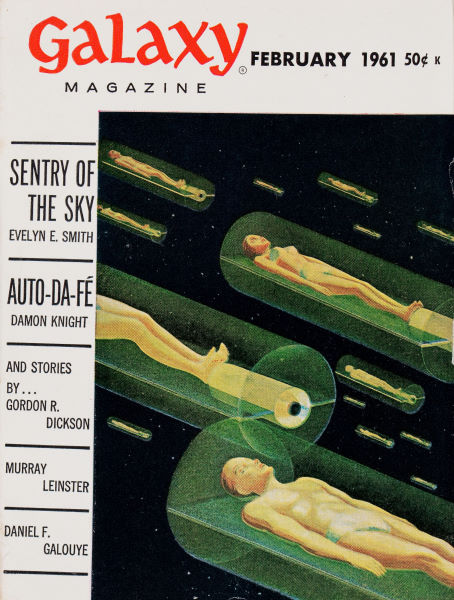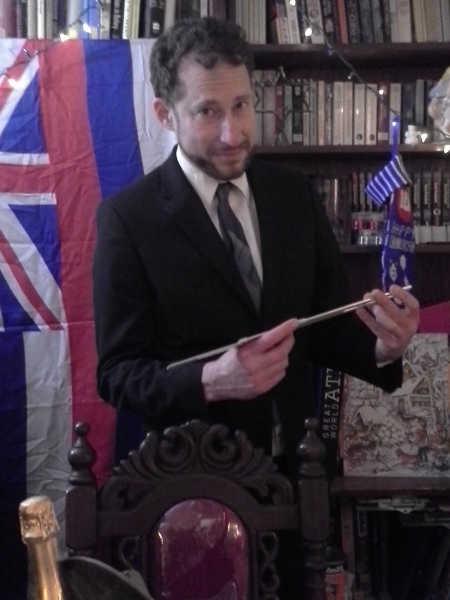
The nice thing about a science fiction magazine (or anthology) as opposed to a novel is if you don't like one story, you might like the next. Once you start a bad novel, your only options are to drag yourself through it or give it up unfinished. And you can't very well review an unfinished novel, can you?
Galaxy's sister magazine, IF, is not as good, on the average, as the other members of the Big Four (including F&SF and Analog). But because it is a digest, occasional stories surprise and delight. There's one gem in this month's issue of IF, and a few other diverting tales.
Not the first one, though. J.T. McIntosh tends to save his dreck for the lesser mags, and his That's the Way it Goes is a thinly redressed pioneer story grafted onto a Malthusian future. Science fiction has to be at least a little visionary if not progressive. Way fails at both, though to its credit, it's not unreadable; just unimpressive. Two stars.
William Stuart's Out of Mind has an interesting concept: a planet of telepaths who present to you the experience you most want to have. As one might expect, it is a dangerous world, indeed, for those who ever want to return home. It's done in a droll satirical fashion that I didn't care for, but you might. Two stars.
I think Frank Banta must be new, as I haven't encountered his name before. The Connoisseur is a sad, humorous story about an off-course colony ship. It doesn't tread new ground, but it is pleasant and short. Three stars.
Seven Doors to Education is the jewel of this issue. It is the third story by newcomer Fred Saberhagen, and I think it's my favorite thus far. A young postal worker with no particular talents or prospects is abducted by unknown forces and presented with a series of increasingly difficult puzzles. Why him? And to what end? A genuinely engaging story with a satisfying conclusion. Four stars.
The Useless Bugbreeders may be James Stamers' best story to date. That's not necessarily high praise given his track record of two and three star submissions, but this particular story, about an attorney attempting to spare a planet in the way of interstellar freeway construction, is silly fun. Three stories.
Cinderella Story, the second story I've read by Allen Kim Lang, retains his breezy style. It works in this tale, of a young woman federal agent who is sent to investigate a most peculiar bank. It scores points for featuring a strong female lead, and for spotlighting the sexism women have to endure in the workplace (though I can't be certain if Lang did so deliberately or unconsciously). Three stars.
Ending with a whimper, the last story is Jack Sharkey's The Flying Tuskies of K'niik K'naak — basically, about the comeuppance of an upper class big-game hunter by his mistreated servant. Again, it's a science fiction story with no science fiction. I appreciate the sentiment, but it's just not that good. Two stars.
That puts us at 2.75 for the whole book, but if you start on page 50 and quit around page 124, you're actually in for a fine read. And that's 75 more pages of good fiction than I've published this month!




